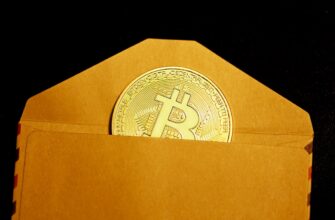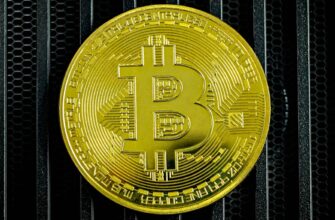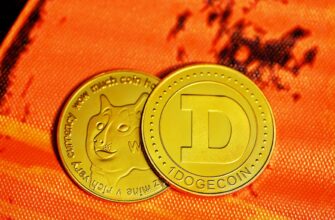- Brazil Bitcoin: South America’s Crypto Powerhouse Emerges
- The Explosive Growth of Bitcoin in Brazil
- Legal Framework: Brazil’s Crypto Regulation Explained
- How to Buy Bitcoin in Brazil: Step-by-Step
- Why Brazilians Are Embracing Bitcoin
- Navigating Risks in Brazil’s Crypto Market
- The Future: Digital Real and Beyond
- Brazil Bitcoin FAQ
Brazil Bitcoin: South America’s Crypto Powerhouse Emerges
Brazil has rapidly become Latin America’s undisputed leader in Bitcoin adoption, with over 10 million citizens now holding cryptocurrency. As economic volatility and currency devaluation plague the region, Bitcoin offers Brazilians an alternative financial system. This guide explores Brazil’s crypto landscape, regulatory shifts, and practical steps for participation. With the Central Bank launching the Digital Real (CBDC) and major exchanges expanding locally, understanding Brazil Bitcoin dynamics is crucial for investors and tech enthusiasts alike.
The Explosive Growth of Bitcoin in Brazil
Brazil ranks among the top 10 global crypto markets, with trading volumes exceeding $7 billion monthly. Key drivers include:
- Inflation Hedge: Annual inflation hit 12% in 2022, pushing citizens toward hard assets
- Remittance Revolution: Bitcoin slashes cross-border transfer fees by up to 80%
- Tech-Savvy Population: 81% internet penetration fuels digital asset adoption
- Institutional Investment: Major banks like BTG Pactual now offer crypto services
Legal Framework: Brazil’s Crypto Regulation Explained
Brazil passed landmark Law 14,478 in December 2022, establishing clear cryptocurrency guidelines:
- Virtual assets recognized as “digital representations of value”
- Exchanges must register with the Central Bank (BCB)
- Anti-money laundering (AML) protocols enforced
- Taxation: Capital gains over R$35,000/month taxed at 15-22.5%
The Securities Commission (CVM) oversees tokenized assets, while the Central Bank manages payment-focused cryptocurrencies.
How to Buy Bitcoin in Brazil: Step-by-Step
- Choose a Regulated Exchange: Mercado Bitcoin (largest local platform), Binance BR, or Foxbit
- Verify Identity: Submit CPF tax ID and photo ID per KYC requirements
- Deposit BRL: Use TED bank transfers or PIX instant payments
- Purchase BTC: Set limit/market orders; minimum investments start at R$50
- Secure Storage: Transfer to hardware wallets like Ledger for long-term holding
Why Brazilians Are Embracing Bitcoin
Beyond speculation, practical use cases drive adoption:
- Real Estate: Luxury apartments in São Paulo sell for Bitcoin
- Retail: Over 3,000 merchants accept crypto via platforms like Bitfy
- Payroll: Companies like Hashdex pay employees in Bitcoin
- DeFi Access: Decentralized lending protocols offer 8-12% APY vs. 2% savings accounts
Navigating Risks in Brazil’s Crypto Market
Investors should remain cautious of:
- Volatility: Bitcoin’s 30-day price swings average 25%
- Scams: Fake exchanges and phishing attacks target new users
- Regulatory Shifts: Proposed bills could impose stricter controls
- Tax Complexity: Monthly reporting required via GCAP system
The Future: Digital Real and Beyond
Brazil’s Central Bank plans to launch its CBDC (Digital Real) by 2024, designed to coexist with Bitcoin. Key developments:
- Blockchain integration with Pix instant payment system
- Tokenized stock trading approved by CVM
- Growing Bitcoin mining operations using renewable hydroelectric power
Brazil Bitcoin FAQ
Q: Is Bitcoin legal in Brazil?
A: Yes. Bitcoin is fully legal and regulated under Law 14,478 since 2022.
Q: What’s the best Bitcoin wallet for Brazilians?
A: Local options like Mercado Bitcoin Wallet or international leaders like Exodus. Hardware wallets recommended for large holdings.
Q: Can I pay taxes with Bitcoin in Brazil?
A: Not currently. Taxes must be paid in BRL, though legislation is being discussed.
Q: How does Brazil’s inflation affect Bitcoin prices?
A: High inflation typically increases Bitcoin demand as a store of value, often causing price surges during economic crises.
Q: Are Bitcoin ATMs available in Brazil?
A: Yes, with over 30 machines in major cities like São Paulo and Rio de Janeiro.
As Brazil positions itself at crypto’s global forefront, understanding Bitcoin’s role provides both financial opportunity and insight into the future of money. With progressive regulation and massive user adoption, Brazil Bitcoin isn’t just a trend—it’s a financial revolution reshaping Latin America’s largest economy.








